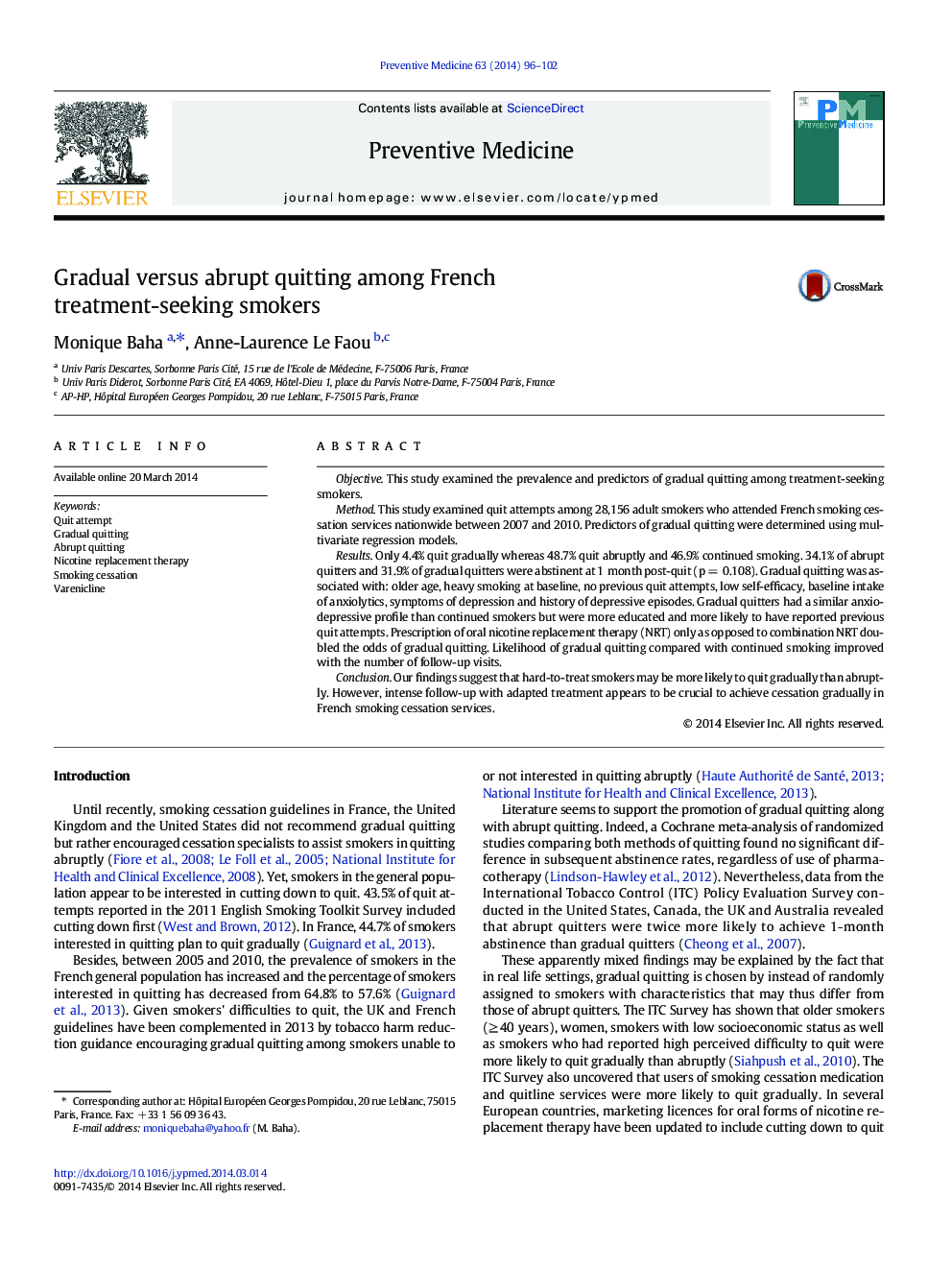| Article ID | Journal | Published Year | Pages | File Type |
|---|---|---|---|---|
| 3100541 | Preventive Medicine | 2014 | 7 Pages |
•48.7% of followed-up smokers quit abruptly and 4.4% quit gradually.•1-Month abstinence rates were similar between abrupt and gradual quitters.•A history of previous quit attempts predicted abrupt quitting.•Baseline heavy smoking predicted gradual quitting.•Gradual quitters shared features with continued smokers but ended follow-up later.
ObjectiveThis study examined the prevalence and predictors of gradual quitting among treatment-seeking smokers.MethodThis study examined quit attempts among 28,156 adult smokers who attended French smoking cessation services nationwide between 2007 and 2010. Predictors of gradual quitting were determined using multivariate regression models.ResultsOnly 4.4% quit gradually whereas 48.7% quit abruptly and 46.9% continued smoking. 34.1% of abrupt quitters and 31.9% of gradual quitters were abstinent at 1 month post-quit (p = 0.108). Gradual quitting was associated with: older age, heavy smoking at baseline, no previous quit attempts, low self-efficacy, baseline intake of anxiolytics, symptoms of depression and history of depressive episodes. Gradual quitters had a similar anxio-depressive profile than continued smokers but were more educated and more likely to have reported previous quit attempts. Prescription of oral nicotine replacement therapy (NRT) only as opposed to combination NRT doubled the odds of gradual quitting. Likelihood of gradual quitting compared with continued smoking improved with the number of follow-up visits.ConclusionOur findings suggest that hard-to-treat smokers may be more likely to quit gradually than abruptly. However, intense follow-up with adapted treatment appears to be crucial to achieve cessation gradually in French smoking cessation services.
